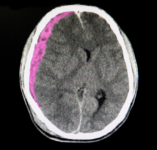Lung cancer is the most common cancer worldwide. Emerging research is demonstrating the power of genetic testing to help us target therapies to the specific needs of subpopulations of patients rather than attempt to deploy one-size-fits-all therapeutics. New research published in BMC Cancer contributes to this growing picture by comparing the … [Read more...]
New Data Comparing the Effects of Specific Cancer Therapies in Lung Cancer
Migraine Drug Shown for First Time to Provide Long-Term Benefits to Patients
The drug erenumab has been shown to reduce the frequency of migraines and improve migraine patients’ quality of life in studies that have lasted between 3 and 12 months. However, there has thus far been little research on the long-term effects of this particular therapeutic strategy. Treating migraine is known to be a complex challenge, and people … [Read more...]
Healthcare Workers at Increased Risk for Voice Disorders During Pandemic
A new study published in Laryngoscope has tackled the issue of whether healthcare workers who have been caring for patients in high-risk units during the COVID-19 outbreak are at increased risk for voice disorders. This cross-sectional study involved a questionnaire that more than 220 healthcare workers answered. The questionnaire included … [Read more...]
New Data on Environmental Factors that May Contribute to ALS
Amyotrophic lateral sclerosis (ALS) is most often classified as sporadic. Because there is no known genetic explanation for the majority of cases of ALS, physicians, and other healthcare experts have long investigated the potential environmental influences that may lead to the development of this devastating degenerative disorder. The authors of … [Read more...]
Infection is the Leading Cause of Death in Survivors of Intracerebral Hemorrhage
Intracerebral hemorrhage is a common, emergency condition diagnosed and treated by emergency physicians, and commonly related to high blood pressure. It involves blood vessel rupture that leads to dangerous bleeding in the brain. While the bleeding can cause severe damage to the brain, people who are treated for intracerebral hemorrhage promptly … [Read more...]





